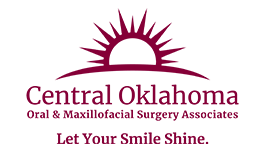14 Jan Why are wisdom teeth typically more difficult to remove than other teeth?
 Patients may not understand why they need to see an oral surgeon in order to have their wisdom teeth removed when they can just go to the dentist to have other teeth extracted. Wisdom teeth are far more likely to become impacted, which requires oral surgery to remove surrounding bone tissue before the tooth can be accessed and removed.
Patients may not understand why they need to see an oral surgeon in order to have their wisdom teeth removed when they can just go to the dentist to have other teeth extracted. Wisdom teeth are far more likely to become impacted, which requires oral surgery to remove surrounding bone tissue before the tooth can be accessed and removed.
Biology of Impacted Wisdom Teeth
The wisdom teeth, or third molars, are the largest teeth in your mouth. For our ancient human ancestors, these large teeth served important purposes. They helped to process a rough diet and they served as replacements for teeth lost to excessive wear and tear, which was quite common.
However, the jaws of modern humans are much more narrow, meaning that many people don’t have room for the wisdom teeth to erupt properly into their jaws. An oral surgeon can determine if a patient’s wisdom teeth are likely to become impacted as early as age 14 or 15, and many patients choose a preventive oral surgery to have wisdom teeth removed in order to avoid the negative effects of impacted wisdom teeth.
Consequences of Impacted Wisdom Teeth
Impacted wisdom teeth can cause many problems for patients, including infections and abscesses, cysts or tumors and significant discomfort. These teeth can also damage neighboring teeth or push straight teeth out of alignment as they continue to attempt to erupt. Unfortunately, it’s impossible to predict when these problems will occur, so many patients opt to be proactive about scheduling this oral surgery before any issues develop.
Wisdom Tooth Extraction
The oral surgeon will numb the area using a local anesthetic, and most patients also choose some level of sedation for additional comfort. The surgeon will remove any surrounding bone tissue and then extract the tooth, before stitching the incision back together. It is recommended that patients undergo wisdom tooth extraction before age 25, as the procedure is more complex in older patients.
Wisdom tooth extraction is a fairly routine procedure, but it’s important to follow your surgeon’s post-operative instructions closely in order to minimize your risk of complications that could derail your recovery, such as dry sockets or infection. Be sure to ask any questions that you may have about the self-care aspect of the procedure.
If you believe that your wisdom teeth are impacted or that your teenaged child has impacted wisdom teeth, schedule an evaluation at our office to learn about the recommended treatment plan.
